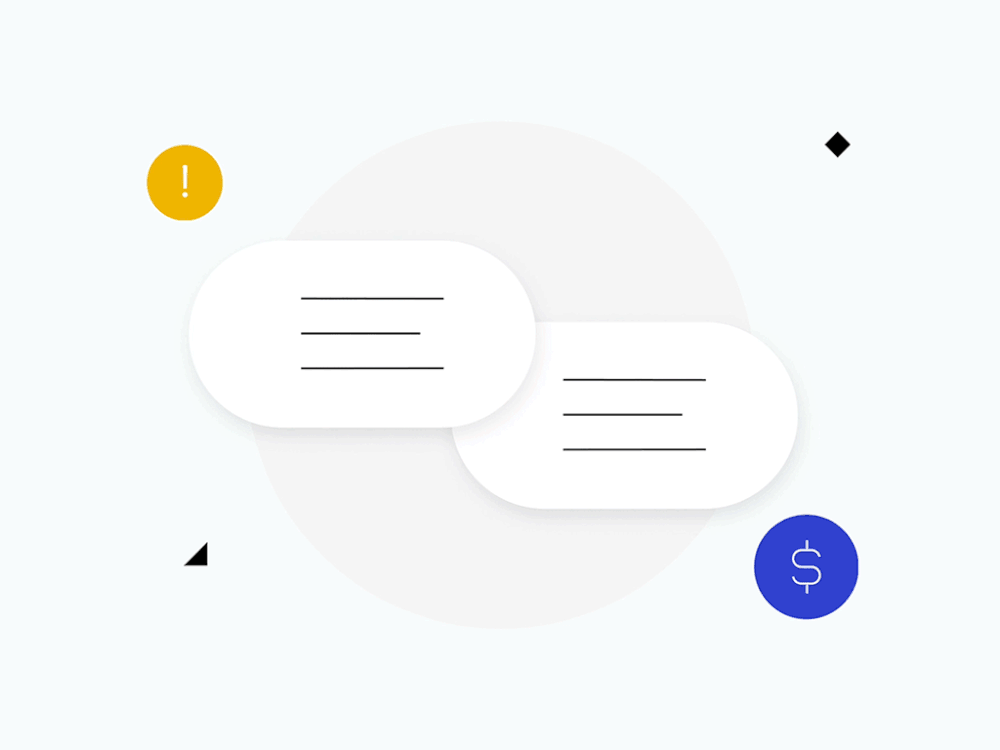 Vanilla
Vanilla
Top 6 costly risks that come with free estate planning documents

Tempted to give your clients free estate planning documents to create a will, trust, or other after-death protections? Think again.
Free estate planning documents come with risks that may ultimately cost clients and their heirs more than they saved in legal fees.
Let’s take a look at some of the significant — and expensive — problems that using free estate planning documents could cause.
1. Excluding family members from a will
Free DIY wills don’t always tailor an estate plan to an individual’s circumstances and goals. This is particularly the case for blended families and new additions when it’s easy to accidentally exclude someone from a will.
For example, if a client’s marriage or family changes after creating a will with “free” software or documents, their assets may not end up with all of their heirs after they die.
Zach Wiegand of Gold Leaf Estate Planning sees mishaps involving remarried clients and their newly formed families all the time.
“It is incredibly common for the children from a prior relationship to wonder: what happened to mom’s (or dad’s) assets?” Weigand says. “Meanwhile, [the] new spouse has a new kitchen and just took a vacation to the Bahamas.”
Before doing their own will with a free template, your client should consider consulting with an attorney to learn if their family needs more protections than the basic DIY document can offer.
2. Leaving assets unprotected from creditors
Freebie estate planning documents aren’t crafted to anticipate the many complications that come with owning outstanding debt. If your client uses free documents and still has debt after passing, creditors may get a hold of the assets before heirs can claim them.
In some states, for example, homestead exemptions protect people from losing their homes to pay off debt. But a poorly worded will may cause a client to lose homestead protection. If that happens, heirs may have to delay the sale of an inherited family home by months — or even years — because of a state-mandated creditor’s waiting period.
If no one is living there, the home may quickly fall into disrepair, losing market value and leading to a smaller inheritance for the family.
Want to help your client avoid creditors swooping in and snatching assets from heirs? Encourage your clients to consult with an attorney to review the ways they can protect their assets from creditors (depending on the state in which they reside).
3. Preventing minor heirs from accessing insurance payouts
Free estate planning documents aren’t designed for advanced estate planning strategies that ensure minor children receive their inheritance without needing to wait until the age of majority. If a client names their child as a beneficiary using free estate documents, the child may not have access to their inheritance until they’re an adult.
In the case of life insurance, for example, parents can’t name children under 18 or 21 (depending on the state law) as direct beneficiaries. Without naming a custodian/guardian or a living/revocable trust as beneficiaries, parents who purchase life insurance may leave their young children with no means of support.
Clients with minor beneficiaries likely need the guidance of an estate planning attorney when crafting living trust and guardianship documents.
4. Receiving unwanted medical treatment
Each state has its own regulations for the preparation of advanced healthcare directives. And unfortunately, free healthcare directive documents may not comply with these requirements. If a client has a life-threatening medical emergency in which they’re incapacitated, free advanced medical directive documents may not ensure their desired approach to healthcare.
For example, a client may want to avoid prolonging their life at all costs in some situations but not others. They may want to be intubated if they’re in an accident, but not if they have COVID-19.
To prevent any accusations of withholding care, healthcare providers default toward treating a patient by any means necessary. If their medical directive documents aren’t compliant with state law or are inaccessible, the patient may receive treatment against their wishes.
While clients may not need a lawyer to create advanced medical documents, it’s a smart move to review them with an attorney, digitize them, and enter them into your medical records.
5. Choosing the wrong fiduciaries for the task
Free estate planning documents don’t come with professional guidance on navigating complicated family dynamics and choosing appropriate executors and trustees to manage an estate. If clients DIY their estate planning using free documents without guidance, they may place their after-death plans into the hands of unqualified people.
Tom Gisriel, an attorney at Pessin Katz Law, says one of the top problems he sees in estate planning is designating contentious relatives as executors.
“We see so many cases come through with unresolved feuds between siblings. It’s one of the most common causes of litigation over an estate,” said Gisriel in a recent article about family feuds. “If there’s even a possibility of an estate causing fights or damaging relationships, we encourage [clients] to look for an independent personal representative who can settle things fairly.”
Clients may want to skip the free estate planning documents and consult with an attorney to guide them through fiduciary designations. It could save their families unnecessary heartache during a difficult time.
6. Costing more in the long run
Free estate planning documents are only free until a client overlooks a crucial detail that will come back to haunt their family. While professional estate planning can be expensive, the alternative may lead to a financial disaster for surviving family members.
Let’s say your client created a revocable trust agreement with a free template using language incompatible with the grantor’s state community/separate property laws. In this scenario, the trust would be a nightmare to administer after the grantor died.
Because revocable trusts are irrevocable upon the death of the trustmaker, beneficiaries must prove in court that the trust needs to be changed or tossed. Between attorney’s services, professional fees, and court proceedings, it can cost an estate $5,000 to $50,000 to untangle a poorly made estate plan in court.
Ultimately, the time and money your client spends on professional estate planning services will pay off. Consider using technology like Vanilla, which pairs financial and legal experts while reducing upfront costs for clients. To learn more, get in touch.
Unlock affordable estate planning—without the risks that come with free estate planning documents
Don’t give in to the temptation of freebie estate planning documents. Vanilla makes estate planning simpler and more affordable than traditional approaches while protecting you and your clients from the risks that come with complicated legal processes.
Deliver a better document creation experience for all of your clients
This article is for educational purposes only and should not be considered legal advice. If you feel that the information in this article is pertinent to your situation, you may wish to consult a qualified attorney for advice tailored to your circumstances.
Published: Feb 02, 2021
Holistic wealth management starts here
Join thousands of advisors who use Vanilla to transform their service offering and accelerate revenue growth.
